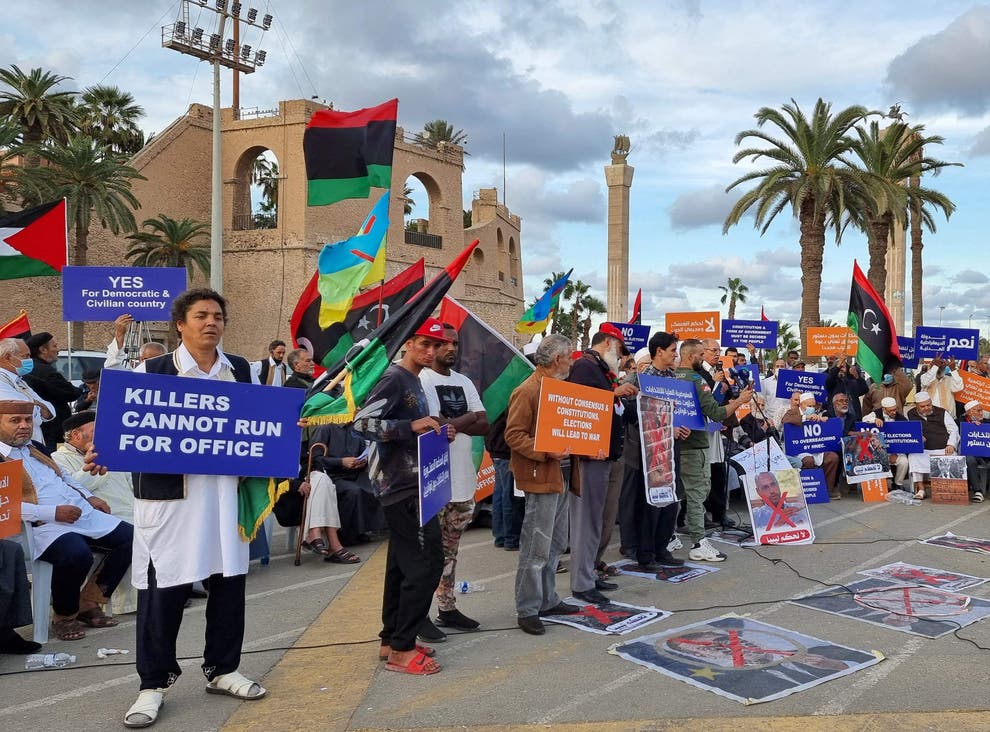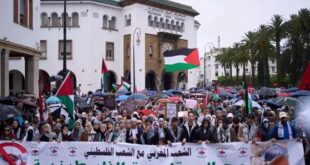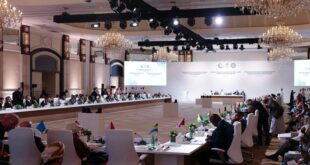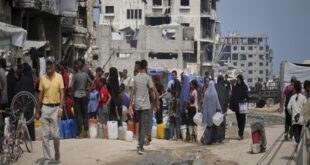
Libya’s parliament has said that Friday’s planned presidential election will not go ahead, leaving the internationally backed peace process in chaos and the fate of the interim government in doubt.
The electoral committee’s statement on Wednesday was the first official announcement of a delay, which had been widely expected amid ongoing disputes over the rules of the polls. It did not set a new date for the polls, which had been scheduled for 24 December.
With major mobilisations in Tripoli and other western areas by armed groups, the collapse of the electoral process risks aggravating local disputes and triggering a new round of violence.
Disputes over the path forward could also undo the wider UN-backed peace process between Libya’s main eastern and western camps that have maintained a ceasefire since last year.
Factions, candidates and foreign powers have been talking behind the scenes about whether an election can still take place with a short delay or whether a longer postponement is necessary to reach agreement on the legal basis of the vote.
UN special adviser Stephanie Williams said on social media she had been meeting members of the political forum that set the electoral process in train last year and reiterated the need for “free, fair and credible elections”.
The electoral committee said that the government’s mandate would expire on Friday.
The elections had long been touted as a way to restore order and unity to a nation ravaged by terrorism, divided by war and degraded by economic ruin, but the build-up has been dogged by disagreements over the vote’s legality and eligibility of some of the frontrunners.
In September the speaker of parliament Aguila Saleh, himself a presidential candidate, issued a law that his critics said was not properly passed through the chamber, deviated from the roadmap and was crafted to benefit himself and his allies.
That law, which split the presidential election from a later parliamentary one, formed the basis of the electoral process, although powerful factions and leading candidates rejected it.
With little agreement on the rules, or on who would enforce them or adjudicate disputes, the entry of highly divisive candidates into the presidential race triggered the collapse of the process.
The three most prominent candidates, eastern commander Khalifa Haftar, the son of the former dictator Saif al-Islam Gaddafi and interim Prime Minister Abdulhamid al-Dbeibah, were also the three most divisive.
Haftar was unacceptable to many in western Libya after his 2019-20 assault on Tripoli that smashed parts of the capital. Gaddafi was convicted of war crimes by a Tripoli court and is detested by many of those who fought in the 2011 revolt.
Dbeibah had promised when he was installed as premier that he would not run in an election and his continued work as prime minister in the run-up to the vote led many of his rivals to say he had an unfair advantage.

World Opinions News / Reuters




 World Opinions Débats De Société, Questions, Opinions et Tribunes.. La Voix Des Sans-Voix | Alternative Média
World Opinions Débats De Société, Questions, Opinions et Tribunes.. La Voix Des Sans-Voix | Alternative Média




